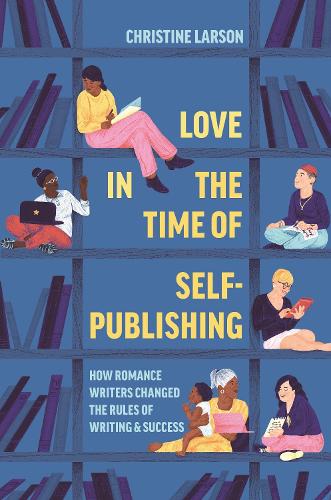
Love in the Time of Self-Publishing: How Romance Writers Changed the Rules of Writing and Success
(Hardback)
Available Formats
Publishing Details
Love in the Time of Self-Publishing: How Romance Writers Changed the Rules of Writing and Success
By (Author) Christine M. Larson
Princeton University Press
Princeton University Press
11th September 2024
United States
Classifications
Tertiary Education
Non Fiction
Cultural and media studies
Sociology: work and labour
Romance
Literary studies: general
813.08509
Physical Properties
Hardback
288
Width 156mm, Height 235mm
Description
Lessons in creative labor, solidarity, and inclusion under precarious economic conditions, offered by the forty-year history of Romancelandia
As writers, musicians, online content creators, and other independent workers fight for better labor terms, romance authors offer a powerful exampleand a cautionary taleabout self-organization and mutual aid in the digital economy. In Writing the Romance, Christine Larson traces the forty-year history of Romancelandia, a sprawling network of romance authors, readers, editors, and others, who formed a unique community based on openness and collective support. Empowered by solidarity, American romance writersonce disparaged literary outcastsbecame digital publishings most innovative and successful authors. Meanwhile, a new surge of social media activism called attention to Romancelandias historic exclusion of romance authors of color and LGBTQ+ writers, forcing a long-overdue cultural reckoning.
Drawing on the largest-known survey of any literary genre as well as interviews and archival research, Larson shows how romance authors became the only authors in America to make money from the rise of ebooksincreasing their median income by 73% while other authors plunged by 40%. The success of romance writers, Larson argues, demonstrates the the power of alternative forms of organizing influenced by gendered working patterns. It also shows how networks of relationships can amplifyor mutecertain voices.
Romancelandias experience, Larson says, offers crucial lessons about solidarity for creators and other isolated workers in an increasingly risky employment world. Romancelandias rise and near-meltdown shows that gaining fair treatment from platforms depends on creator solidaritybut creator solidarity, in turn, depends on fair treatment of all members.
Author Bio
Christine Larson is assistant professor of journalism at the University of Colorado, Boulder. Her writing has appeared frequently in the New York Times, the Wall Street Journal, and other national outlets, as well as in such scholarly journals as Information Communication and Society and Media, Culture & Society. She is the coauthor of Influence: How Women's Economic Power Will Change Our World for the Better.
